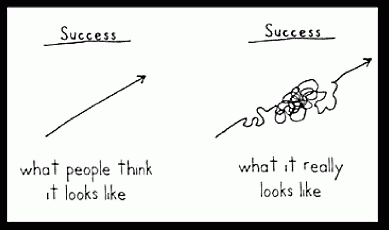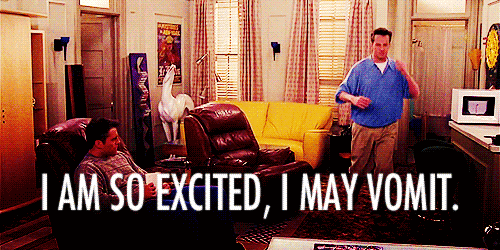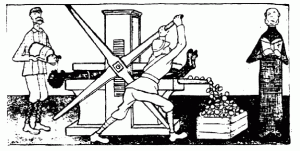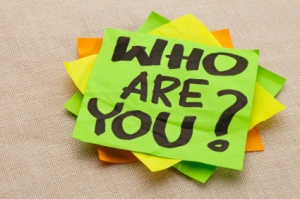Do you or anyone you know need help in resume building, interviewing and their general career search?
If so, you’ll want to check this out! – Want to skip the post – check out this video.
The typical question anyone in university is used to being asked is, “What are you going to do after school?” Answering this question is not so easy. For me the answer comes in a roundabout way; it’s kind of like this image.
This image isn’t new but, it holds true. Determining what “success” looks like to you is really about finding your way along the meandering path.
In my previous blogs, I’ve talked about my travels and the people I have met. I met a variety of older people and asked them questions about their lives; including careers. Their responses solidified that whatever I end up doing I need to be happy doing it; regardless of renumeration.
Now the question becomes, what job/career will make me happy?
This question leads me to talk about ESLInSight which is a company founded by Leah Penelope Watt; a woman I met in Bukit Lawang, Indonesia.
ESLInSight is an editing and online teaching company that specializes in resume building and interview preparation for native and nonnative English speakers. Its unique editing services combine editing with teaching so that clients not only receive a strong, professionally edited document but they also learn the skills necessary to produce a similar quality document in the future. The company provides editing services for a wide range of document types and also offers one-to-one general and business ESL and exam preparation courses via Skype.
I ended up in Bukit Lawang after a boat ride, food poisoning, an expired visa, a Thai holiday and heading to Indonesia with some strangers; none of which was planned.
This picture was taken the night after the unforgettably unique and priceless experience of trekking for 3 days through the Indonesian jungle. It was full of danger, surprises, and good times. Leah is on the far right just next to one of our guides.
I asked her some questions as I wanted to learn more about her and how she came about starting ESLInSight. Her responses confirm what I talk about above; she embodies the concept that there isn’t just one path to success.
- Who are you? What is your experience/qualifications?
I have always been an avid writer and reader, traveler, and lover of language. My first editing role was as Arts and Entertainment Editor for a local college newspaper when I was just 16 years old. Throughout my academic and professional careers, I have worked as an editor and curriculum developer in various capacities. I have worked in academia for 9 years and as an English as a Second Language Instructor for much of that time. I lived in Asia for 5 years, where I taught a variety of English courses to students of all ages at a reputable university in Busan, South Korea. Additionally, among other jobs and roles, I conducted Business English seminars for Korean civil service workers, taught business English courses to SK Group executives, and worked alongside the British Council to design and conduct teacher’s training courses. Since returning to the USA, I have worked with internationally-renowned TOEFL and USMLE preparation companies and have continued to conduct business and general English courses via Skype.
2. How do you work within a global market and manage clients from any/all languages, backgrounds, ethnicities, etc.
I have traveled in more than 30 countries and worked with students from nearly twice as many so I have a lot of experience interacting and working with people of different cultures, backgrounds, and ethnicity. In fact, one of the most exciting aspects of my job is inadvertently learning about different cultures through my interactions with students.
For my Skype courses, I offer a free, introductory course; I meet with a prospective student to assess his English level and discuss his interests and goals for the class, then tailor the course to meet his needs. With my background in curriculum development and given the wide range of interests of my students, I often write individual lesson plans, although I use a variety of materials and resources in my courses. Some of my students are very specific about what they want to learn, whereas others prefer a more organic, conversational approach to language learning. With lower level learners, in particular, I strive to provide curriculum that challenges and improves all aspects of skill development, including reading, writing, listening, speaking, and grammar.
Social media and word of mouth have been largely responsible for the success of ESLInSight in recruiting new clients and students.
3. What motivated you to start the company?
I’ve noticed throughout my teaching career that most students’ goals are much loftier than what they initially seek help to achieve. A student might register for general English courses to improve her language ability but with the end goal of studying abroad or working for an international company. Having a strong command of English is just one step in a process that often includes preparing strong, tailored resumes and cover letters, interviewing with multiple institutions, writing university application essays, taking an English proficiency and/or college entrance exam, etc. The goal of ESLInSight, motivated in large part by my passions for and knowledge of business and education, is to assist nonnative English speakers through each phase of this process to achieve their longterm professional or educational goals.
4. How has your previous experiences amalgamated into this business? And did you ever anticipate this shift?
ESLInSight is a culmination of years of education and experience in business, ESL, education, editing, and curriculum development. I have always had a keen, innate business sense and knew that I would start a business of some sort. After spending much of my professional career working in the ESL field, it seemed like a natural progression to start a company that puts my skills, experience, and insight to use to serve a larger community of English learners and professionals.
5. From those experiences can you tell me about a “success” story?
I prefer to let the students do the talking:
“When I started to look for a new job I was confused with writing a resume in English. I had been working a lot on it and thought that I had done it well. Fortunately I asked Leah to look over my resume and correct it. Lucky me… I hadn’t sent that text to any employer at that time. Leah helped me to correct my awkward sentences which sounded strange in English and pointed out the mistakes that I made. Soon my resume looked like it has to look. Thanks to Leah.” -Sergey, Moscow, Russia
“Leah’s help was invaluable in helping me to prepare for my assessment center. During our sessions, we had mock interviews, during which she gave advice about how to look my best to interviewers. Thanks to her, I was ready for anything in my interview, and I will continue to be ready for any future interviews that come.” -Vivek, Glen Cove, NY, US.
6. Finally, do you want to say anything to the readers about the importance of your work?
Many people I’ve encountered over the years share the limited perspective that all one needs to live and work abroad is a decent command of English or a high TOEFL (Test of English as a Foreign Language) score. The process of actually securing employment in America and other English-speaking countries or companies is actually much more involved and can also be quite daunting so it is important to start early and seek support each step of the way.
Through individualized language, interview, and exam preparation courses and professional document editing, ESLInSight teaches the skills that are necessary to achieve these goals, while providing insightful feedback and excellent support along the way. This is more important and relevant now than ever before because, in a market saturated by language instruction, ESLInsight considers the individual as a whole: who they are, what they need, and where they are going. Unlike other companies and language schools, ESLInSight strives to provide a broadened perspective, not only on language foundation, but how to excel beyond the competition and reach the next stage in life and beyond.
A list of ESLInSight’s services:
-Professional Document Editing: Résumés, Cover Letters, University Admissions Essays, & More
-Interview Preparation: Professional & University Admissions Interviews
-Business English Courses
-General English Courses
-Exam Preparation: TOEFL, IELTS, USMLE, & More
I truly enjoyed hearing more about Leah and ESLInSight. I still don’t know what I want to do, but the journey appears much less daunting.
But, the bigger point of this post is too spread the word. For those familiar with the struggle of finding a career and doing so in another language, ESLInSight. can help with the related challenges.
If this sounds like anything you or someone you know needs do not hesitate to check out her website, twitter, youtube, linkedin, or e-mail at ESLInSight@Gmail.com.
















